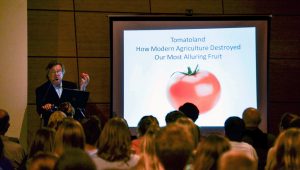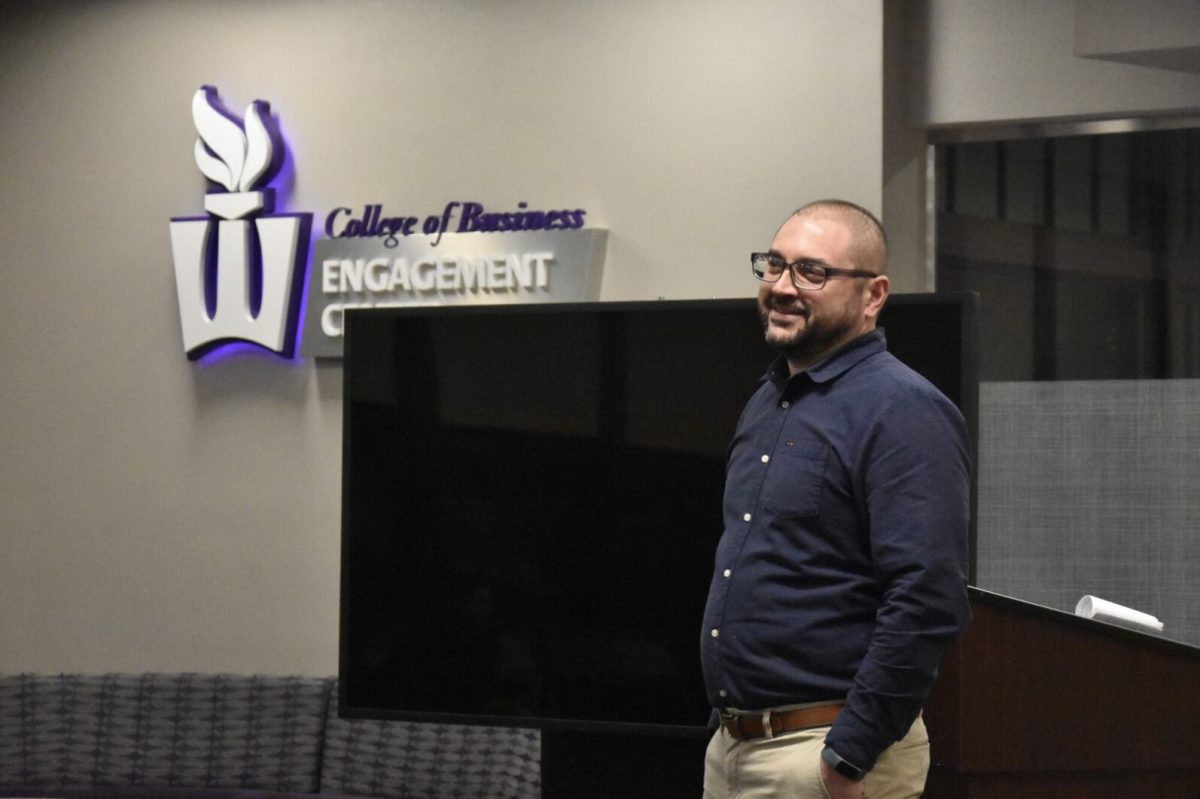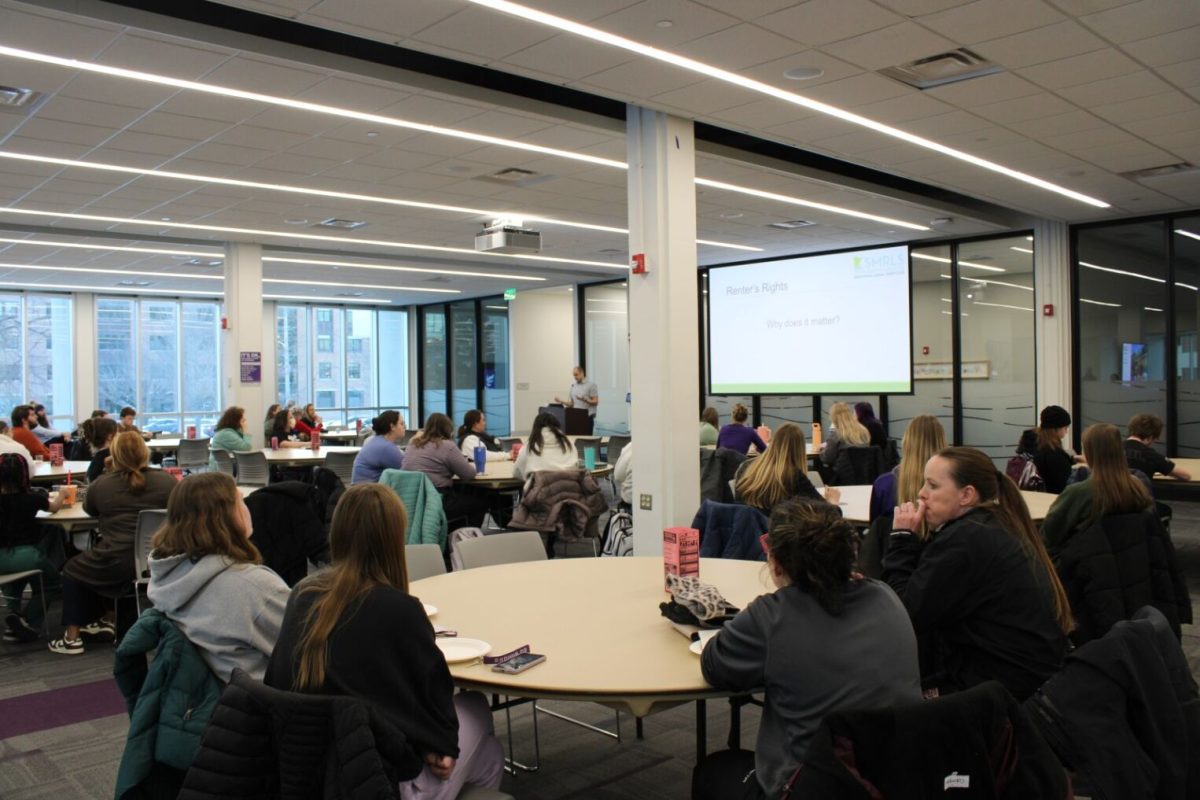
Lindsay Miller/Winonan
Abby Peschges/Winonan
Author of the book “Tomatoland” Barry Estabrook spoke to students at Winona State University about his book and the conditions of the workers on farms in Florida last Wednesday, Oct. 17.
Estabrook spoke as part of the Great River Reading Series. He is the recipient of the 2010 James Beard Award for magazine feature writing.
The Great River Reading Series brings in a few writers of poetry, fiction, and creative non-fiction writing each semester.
Professor Debra Cumberland said, “It is a great opportunity for students to meet writers who are doing the things that the students want to do in the future.” Writers are selected by creative writing professors who are open to suggestions.
Estabrook began his speech by throwing a tomato that he bought at a supermarket into the audience. After he pointed out that the tomato was relatively undamaged he said, “It shouldn’t do that.” Estabrook explained that Florida winter tomatoes have one third less vitamin C and fourteen times more sodium than a tomato did in the 1960s.
Even though more people are buying locally during the summer, one in three tomatoes in winter come from about a dozen corporations located in Florida.
What began as a process to figure out how a tomato could be thrown as a baseball turned into a human rights initiative in Immokalee, Florida. Tomatoes still need to be picked by hand, and those who do the picking work for ten hours a day in the 90 degree heat bent over.
Student Lily Kane said, “I really enjoyed hearing about how these random personal experiences sparked this interest in learning more about something, like tomatoes, which eventually ended in articles and now a book.”
Estabrook learned that workers receive no overtime, benefits, vacation or sick pay. Estabrook said, “These farms are the sweatshops of the fields.” Workers receive 50 cents per 35 pound bucket which averages to ten to twelve thousand dollars a year. A study at the University of Oregon determined the life expectancy of workers to be about 49 years.
Workers are also exposed to toxic pesticides. Of the workers Estabrook spoke with, 96 percent reported getting sprayed directly while they were working in the field, and one third of those who had been sprayed said that they were sprayed every day.
Estabrook went to Florida and visited the neighborhood where the workers live. He showed a picture of a tiny trailer that they live in. Groups of ten workers live together without heating, air conditioning, and decent water pressure. There is no housing jurisdiction in the area, and rent for these trailers is 2000 dollars a month.
Estabrook said men have been bought and sold on the side of the road for 300 to 400 hundred dollars. People are being shackled and chained at night, beaten for not working hard enough, and people are killed trying to escape.
Some progress has been made in gaining rights for field workers. In the early 1990s, a group of men met and formed a “gripe session.” They discovered by helping one of the men get his overdue paycheck that they had strength in a group. They formed the Coalition of Immokalee Workers.
Estabrook said, “Universities played a big role in the horrific conditions of the tomato industry.” It was students who pressured chain restaurants to help by getting them removed from universities until they signed the Fair Food Agreement.
The Fair Food Agreement forces farms that are contracted to food companies to provide health and safety training to workers, little tents to provide shade, punch clocks, and a grievance procedure. Workers receive an extra cent for each pound they pick which results in a raise from about $50 a day to $80. As Estabrook said, “the lowest man is now connected to the chairman at McDonald’s.”
Estabrook said that there is still a long way to go, “Big chains only represent half of the food market. Aside from Whole Foods and Trader Joe’s, no major supermarkets have agreed to sign the Fair Food Agreement.”
Contact Abby at APeschges09@winona.edu







































